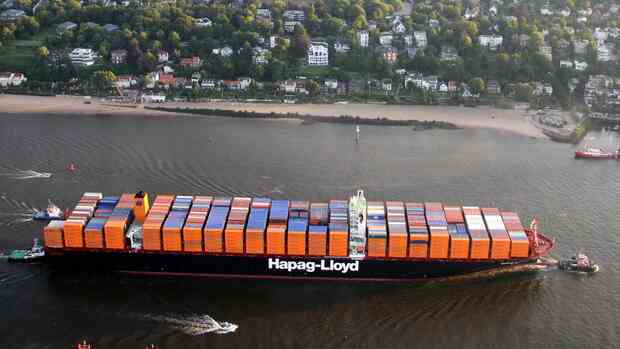It is not the first time that globalization has gone into reverse gear. Economic historian Harold James has identified seven globalization crises since 1850, some of them severe. Although each of these led to a new phase of globalization, it is by no means certain that the past winners of globalization will also be the future winners.
As a regular “export world champion”, Germany has so far been a winner of globalization. German politicians have at least verbally recognized that maintaining this position is a challenge.
There is a lot of talk about reducing dependencies on China in particular and bringing the production of critical products back to Europe and Germany. Subsidies are intended to compensate for the sometimes considerable cost disadvantages of local production compared to imports.
It is no less challenging to secure access to energy and critical raw materials. In view of the Chinese strategy of establishing a monopoly in some areas, it will not only be expensive to develop other sources, it will also take years.
Top jobs of the day
Find the best jobs now and
be notified by email.
In their latest report, the economists rightly call for consistent action. However, in view of the prevailing attitude in Germany of not wanting to use local deposits – from natural gas to lithium – the dependency on other countries is likely to remain and increasingly prove to be a competitive disadvantage.
Germany has so far been the winner of globalization.
(Photo: dpa)
After all, the Bundestag has finally ratified the free trade agreement with Canada. Further agreements, especially with the USA, must follow quickly, because with whom else should we trade freely in a deglobalized world if not with the countries that share our values?
>> Read here: Signs of life from a trading power: how the traffic light, of all things, got the Ceta agreement through
At the same time, we have to recognize that it will not be possible to implement our understanding of human rights globally for the time being. We will have to continue trading with countries that have different values from ours, as the recent gas deal with Qatar underscores. Other states are far more pragmatic, as the USA and France are currently demonstrating with regard to Venezuela. This does not have to be a disadvantage, since the exchange of goods reduces the risk of military conflicts.
Measures such as free trade agreements, a secure supply of raw materials and reduced dependencies but not enough to ensure prosperity in Germany. In order to generate high incomes over the long term within the framework of free trade, you have to belong to the top group in high-margin, sustainable business areas.
According to expert opinions, we only have a clear advantage in traditional technologies and are lagging behind in future technologies such as the Internet of Things, Big Data and artificial intelligence.
More investment in education is needed
At the same time, the risks for the traditional areas are obvious. The automotive industry is in the midst of a fundamental change, and the concern that considerable capacity will be lost in Germany is justified. In other areas, too, we have not only been under pressure since the energy cost shock.
>> Read here: Buyers’ strike: will German car dealers soon be in crisis?
If we also want to be a leading player in the next phase of globalization, it is urgently necessary to permanently reduce energy costs and, above all, to invest more in education, research and innovation.
There is no lack of politicians’ speeches on this topic, but there is a lack of actions. The fact that, according to data from the Ifo Institute, almost every fourth young person in Germany leaves school without basic skills is not only a crime against the coming generation, but also a first-class warning signal.
Daniel Stelter is the founder of the discussion forum beyond the obvious, which specializes in strategy and macroeconomics, as well as a management consultant and author. Every Sunday his podcast goes online at www.think-bto.com.
(Photo: Robert Recker/ Berlin)
If politicians are serious about their desire to export Western values to the world, they must ensure that we remain a strong trading nation. Economic strength is the best basis for human rights policy. It would be nice if the traffic light recognized that.
Daniel Stelter is the founder of the discussion forum beyond the obvious, which specializes in strategy and macroeconomics, as well as a management consultant and author. Every Sunday his podcast goes online at www.think-bto.com.
More: Supply chain risk – How the lack of raw materials is slowing down the German auto industry
